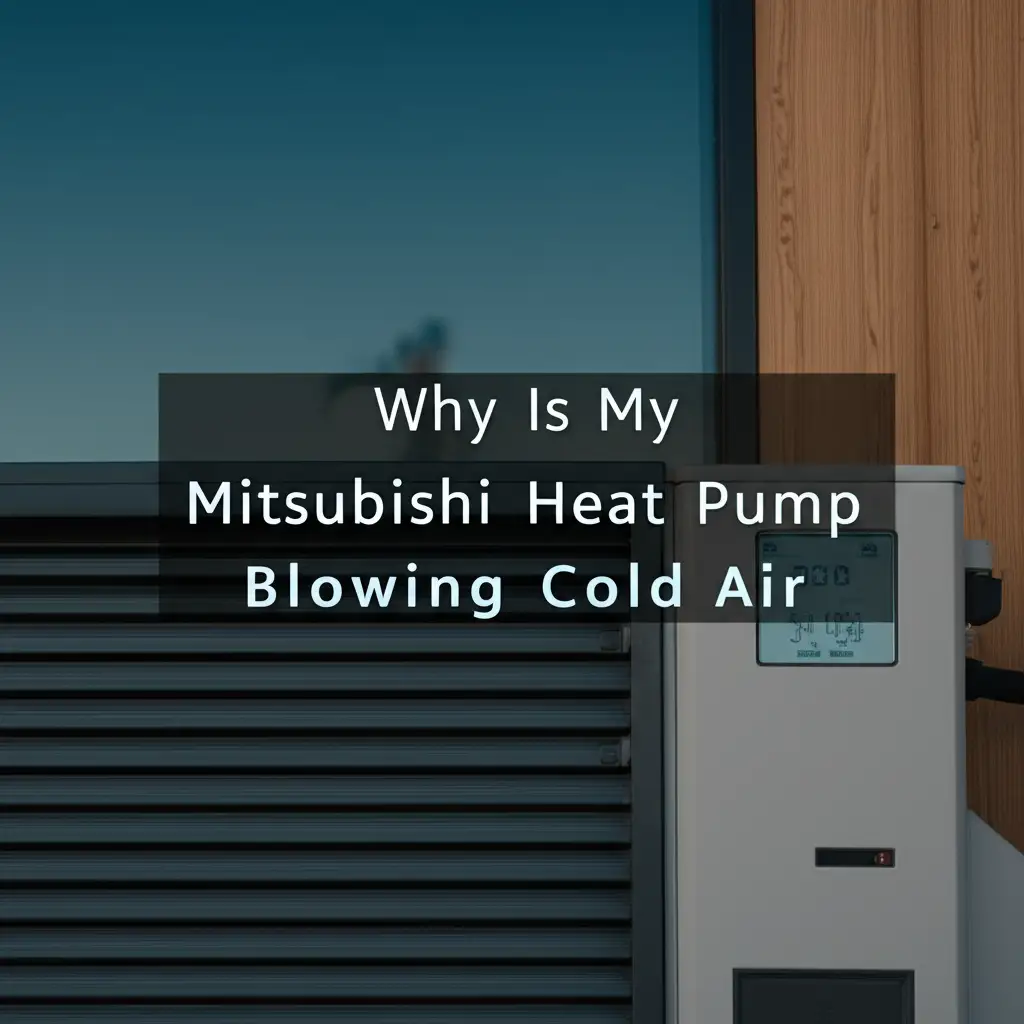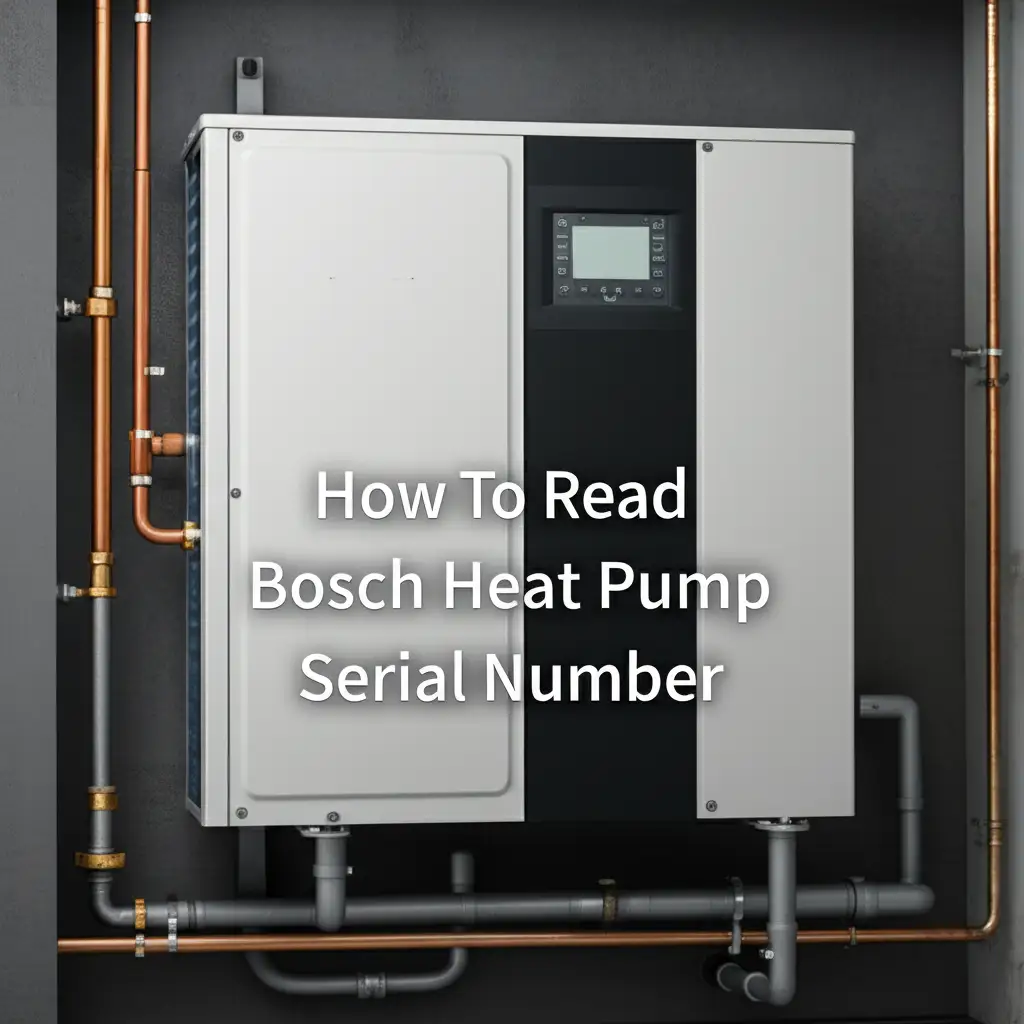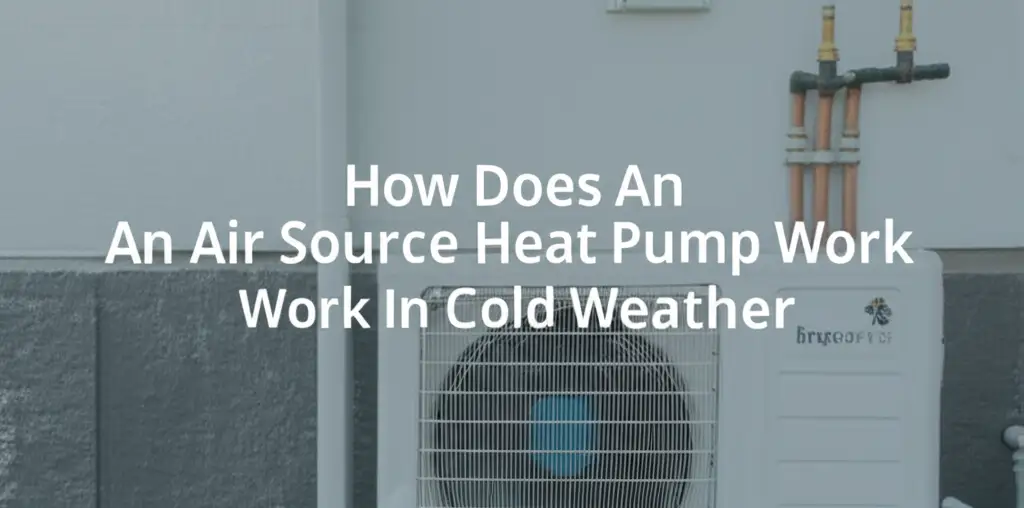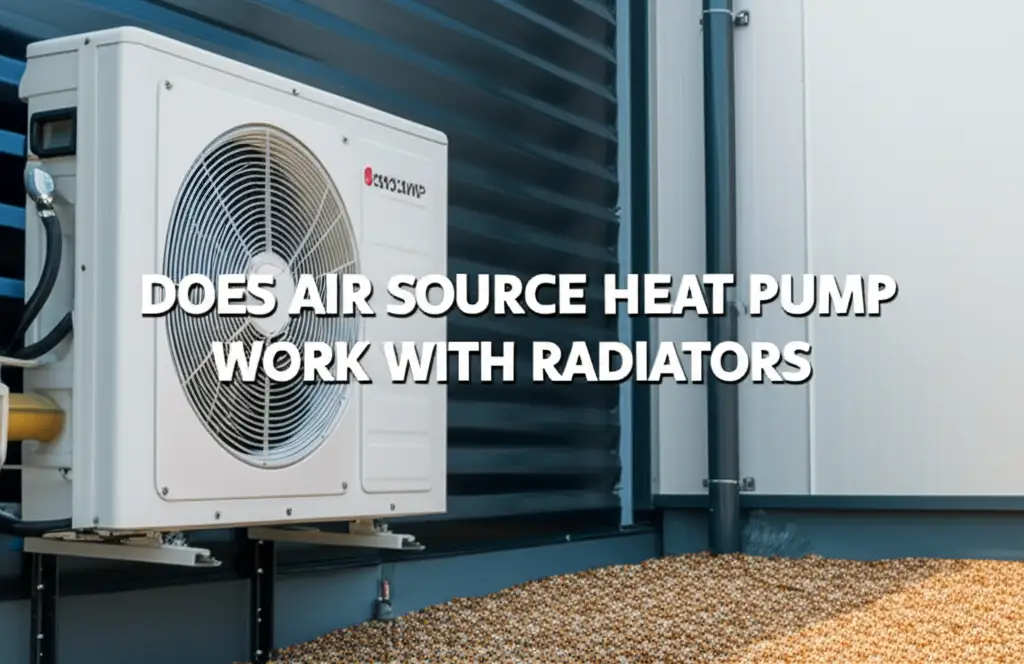· Todd Martin · Heat Pumps · 24 min read
How Often Should An Air Source Heat Pump Be Serviced
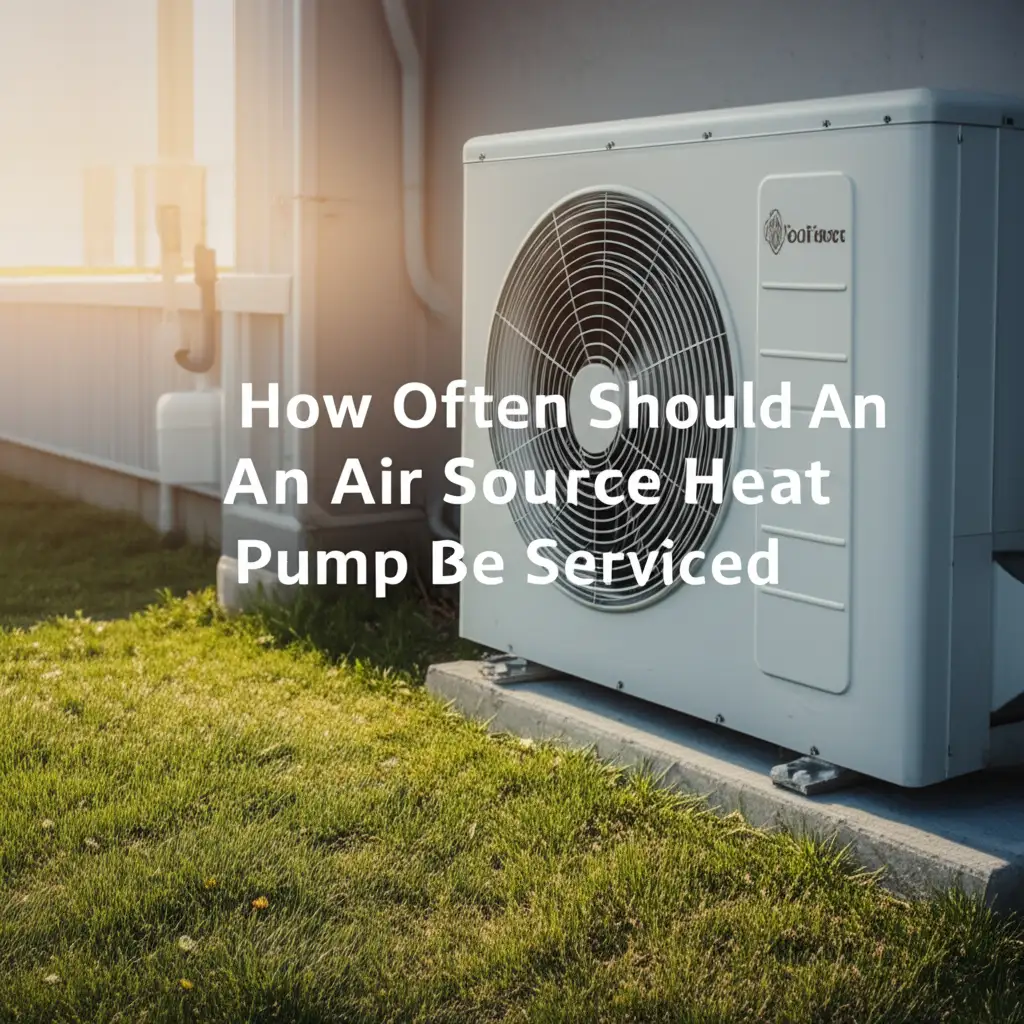
Servicing Your Air Source Heat Pump: How Often Is Enough?
Do you ever wonder how often you should service your air source heat pump? Many homeowners install these efficient heating and cooling systems. They often forget that regular maintenance is vital. Skipping service can lead to higher bills and unexpected breakdowns. An air source heat pump needs proper care. This ensures it runs well and lasts for many years. We will explore the best service schedule for your heat pump. We will also cover what professional checks involve. This guide helps you understand how to keep your system in top shape.
Takeaway
- Annual Professional Service: Schedule a professional service for your air source heat pump once a year.
- Regular DIY Checks: Perform simple checks like cleaning filters and clearing outdoor unit debris monthly or quarterly.
- Consult Your Manual: Always follow your manufacturer’s specific service recommendations for optimal performance.
- Address Issues Quickly: Do not delay calling a technician if you notice strange noises, reduced performance, or unusual costs.
An air source heat pump should be serviced at least once a year by a qualified professional. This annual check ensures efficient operation, prevents minor issues from becoming major problems, and helps maintain the system’s warranty. Regular DIY maintenance, like cleaning filters, is also essential between professional visits.
The Importance of Regular Air Source Heat Pump Servicing
Regular servicing is not just a suggestion; it is a necessity for your air source heat pump. Think of it like servicing your car. You would not drive for years without an oil change or tire rotation. Your heat pump works hard daily to keep your home comfortable. This constant operation puts wear on its components. Neglecting service can lead to a decline in performance.
A well-maintained heat pump operates at its best efficiency. This means it uses less energy to heat or cool your home. When components get dirty or wear out, the system works harder. This increases your electricity bills. Regular servicing helps identify and fix these small issues before they escalate. It also extends the overall life of your unit. A serviced heat pump lasts longer, saving you money on early replacement costs. It also ensures your warranty remains valid. Many manufacturers require proof of annual service.
Maintaining Optimal Efficiency and Performance
An air source heat pump pulls heat from the air outside. It moves this heat inside your home. Or, it pulls heat from inside your home and moves it outside for cooling. This process requires many parts to work together perfectly. Dust, dirt, and debris can accumulate on coils and filters. This buildup restricts airflow and heat transfer. Your heat pump then struggles to perform its job. It uses more energy to achieve the desired temperature.
Regular cleaning and inspection during service remove these obstructions. The technician also checks refrigerant levels. Low refrigerant directly impacts efficiency. Addressing these issues ensures your system operates as designed. It delivers consistent comfort without excessive energy use. This reduces your carbon footprint and saves you money. Many people wonder why is my air source heat pump costing so much. Often, lack of servicing is a primary reason.
Extending Your Heat Pump’s Lifespan
Heat pumps are a significant investment for any home. You want your system to last as long as possible. Neglecting maintenance puts stress on internal components. Motors, compressors, and fans work harder when the system is dirty or out of tune. This added stress leads to premature wear and tear. Over time, these parts will fail sooner than expected.
A professional service catches small problems before they cause major damage. A loose wire, a worn belt, or a minor refrigerant leak can be fixed easily. If left unaddressed, these small issues can lead to expensive repairs. They might even require a full system replacement. Regular servicing protects your investment. It ensures you get the full lifespan from your air source heat pump. This makes financial sense in the long run.
Upholding Warranty Requirements
Most air source heat pump manufacturers offer warranties on their equipment. These warranties protect you from costly repairs if a component fails prematurely. However, nearly all warranties come with a crucial condition. You must have your system professionally serviced regularly. Typically, this means an annual check. Manufacturers specify this because they know proper maintenance prevents most problems.
If a major part breaks down and you have not followed the service schedule, your warranty might be void. This means you would pay for the full cost of the repair. These repairs can be very expensive, especially for key components like the compressor. Always check your heat pump’s warranty documentation. Understand its specific service requirements. Keep records of all professional services. This protects your investment. It also ensures you can claim warranty coverage if needed.
Recommended Service Frequency for Air Source Heat Pumps
Determining the right service frequency for your air source heat pump is crucial. While there is a general guideline, specific factors can influence how often your system needs attention. Understanding these recommendations helps you plan your maintenance schedule effectively. Most experts agree on a minimum standard. However, your home’s unique situation might require more frequent checks.
The primary recommendation is clear. Get your air source heat pump serviced by a professional technician once a year. This annual check is comprehensive. It covers everything from electrical connections to refrigerant levels. Many homeowners choose to schedule this service just before the peak heating or cooling season begins. This ensures the system is ready for heavy use. An annual service helps catch small issues before they become major problems. It also maintains efficiency.
Annual Professional Check-Up
An annual professional service is the cornerstone of heat pump maintenance. This visit ensures your system is thoroughly inspected and tuned. The technician checks crucial components. These include the compressor, fan motors, and electrical connections. They also measure refrigerant levels and pressures. This ensures optimal performance and safety. A professional cleans coils and drains. These areas can accumulate dirt and algae. This buildup reduces efficiency.
This yearly service helps prevent unexpected breakdowns. It also extends the lifespan of your heat pump. Think of it as a thorough health check for your home’s comfort system. It identifies potential problems early. This allows for timely repairs, which saves money. It also keeps your warranty valid. This peace of mind is invaluable. Consider scheduling your annual service in spring or fall. These are off-peak seasons for HVAC technicians.
Why Annual Service is Sufficient for Most Homes
For most residential air source heat pump owners, an annual professional service is perfectly adequate. Modern heat pumps are built to be robust. They are designed for reliable operation with standard maintenance. Unless your system is very old or operating under unusual stress, yearly checks handle most preventative needs. The annual service covers essential tasks. These tasks keep the system running smoothly. It is a cost-effective way to maintain performance.
Additional services might not provide significant extra benefits for a typical household. Over-servicing can be unnecessary. It adds to maintenance costs without substantial returns. Focus on consistent annual service. Also, perform simple DIY tasks between visits. This approach balances proper care with practical economics. It is the most common and recommended schedule.
Factors That Might Require More Frequent Servicing
While annual service is standard, certain factors can increase the need for more frequent checks. Your home’s environment plays a role. If you live in an area with high dust, pollen, or airborne debris, your outdoor coil might get dirty faster. This reduces airflow. Homes with pets can also contribute to quicker filter clogging and coil buildup. Pet dander and hair accumulate. This impacts system performance.
Usage patterns also matter. If your heat pump runs almost continuously, like in extreme climates, it experiences more wear. This increased operational time can warrant more frequent inspections. Older heat pumps, those approaching the end of their lifespan, may also benefit from bi-annual checks. They are more prone to developing issues. Always consult a qualified technician. They can assess your specific situation. They can recommend a customized service plan.
What a Professional Air Source Heat Pump Service Includes
When a qualified technician services your air source heat pump, they perform a comprehensive check. This is much more than a simple visual inspection. They use specialized tools and knowledge to assess every critical component. Understanding what a professional service entails helps you appreciate its value. It ensures no crucial steps are missed during the maintenance visit.
A professional service covers both the indoor and outdoor units. The technician starts by inspecting the outdoor unit for debris. They clean the coils. Then, they move inside to check the indoor air handler. They verify electrical connections are secure. They also lubricate moving parts as needed. This thorough process aims to identify wear and tear. It helps prevent future malfunctions. It also maximizes your heat pump’s energy efficiency.
Comprehensive System Inspection
A professional service begins with a detailed inspection of the entire air source heat pump system. This includes both the outdoor compressor unit and the indoor air handler. The technician visually checks for any obvious signs of damage or wear. They look for corroded wires, loose connections, or unusual leaks. They inspect the refrigerant lines for any kinks or damage. This initial overview helps pinpoint potential problem areas.
The inspection extends to the ductwork as well. They check for leaks or blockages. These issues can drastically reduce efficiency. A thorough inspection is crucial. It sets the stage for accurate diagnostics and effective maintenance. It helps ensure every part of the system is considered. This prevents small issues from being overlooked.
Cleaning and Calibration
Cleaning is a major part of heat pump servicing. The technician cleans the outdoor coil. This coil often accumulates dirt, leaves, and other debris. A dirty coil cannot efficiently absorb or release heat. They also clean the indoor evaporator coil if accessible. This prevents mold and mildew growth. How to clean heat pump coils is a task often best left to professionals. They have the right tools and chemicals.
Calibration ensures your heat pump operates precisely. The technician checks thermostat accuracy. They also verify proper airflow. They measure refrigerant levels and pressures. These must be exact for peak efficiency. They adjust fan speeds if necessary. Proper calibration optimizes performance. It ensures your heat pump delivers comfort efficiently. This also prevents unnecessary wear on components.
Safety Checks and Performance Testing
Safety is paramount during any professional service. The technician checks all electrical components. They look for frayed wires, loose terminals, or signs of overheating. They test safety switches and controls. They also inspect the condensate drain line. A clogged drain can lead to water damage and mold growth. Ensuring safe operation protects your home and family.
Performance testing evaluates how well your heat pump is working. The technician monitors temperatures. They check airflow coming from vents. They listen for unusual noises. They also use diagnostic tools to measure various operational parameters. This testing confirms the system is performing optimally. It identifies any underlying issues that might not be visible. This final step guarantees your heat pump is ready for reliable operation.
DIY Air Source Heat Pump Maintenance Tasks
While professional servicing is essential, there are several simple maintenance tasks you can perform yourself. These DIY actions help keep your air source heat pump running smoothly between annual professional visits. They can improve efficiency and prevent minor issues from escalating. Taking a proactive approach to your heat pump’s care saves you money in the long run. It also gives you a sense of control over your home’s comfort system.
These tasks do not require specialized tools or training. They mostly involve basic cleaning and observation. Regular DIY maintenance complements professional service. It does not replace it. By doing these simple checks, you contribute to your heat pump’s overall health. You also become more familiar with its normal operation. This helps you spot potential problems sooner.
Cleaning or Replacing Air Filters
This is perhaps the simplest and most important DIY maintenance task. Your air source heat pump has an air filter. This filter traps dust, pollen, and other airborne particles. A dirty filter restricts airflow. This forces your heat pump to work harder. It reduces efficiency and can damage the system. You should check your air filter monthly. If it looks dirty, either clean it or replace it.
Most manufacturers recommend changing disposable filters every 1-3 months. If you have pets or allergies, you might need to change it more often. Reusable filters can be washed. Make sure they are completely dry before reinserting. A clean filter improves indoor air quality. It also significantly boosts your heat pump’s efficiency. This saves you money on energy bills.
Keeping the Outdoor Unit Clear
The outdoor unit of your air source heat pump needs clear space around it. It pulls air in to extract or release heat. If airflow is blocked, its efficiency drops. Regularly inspect the area around the outdoor unit. Remove any leaves, grass clippings, dirt, or other debris. Trim back any shrubs or plants that are growing too close. Maintain at least two feet of clear space around all sides.
Also, check the fan blades. Carefully remove any visible debris, like small sticks or leaves. Be gentle to avoid bending the blades. In winter, clear away snow and ice. Do not let snow pile up around the unit. This simple step ensures proper airflow. It helps your heat pump operate effectively year-round. This also prevents potential damage from obstructed airflow.
Inspecting for Visible Damage and Leaks
Take a moment to visually inspect both your indoor and outdoor heat pump units regularly. Look for any obvious signs of damage. Check for dents, cracks, or loose panels. Pay attention to the refrigerant lines. Look for any signs of ice buildup or oily residue. These could indicate a refrigerant leak. While an air source heat pump works in cold weather, ice is generally not normal.
Listen for any unusual noises. A new rattling, buzzing, or grinding sound can signal a problem. Also, check the condensate drain line. Ensure it is not clogged and water is draining properly. If you notice anything unusual, contact a professional immediately. Early detection can prevent minor issues from becoming costly repairs. Your attentiveness can save you money.
Signs Your Heat Pump Needs Immediate Service
Even with regular maintenance, your air source heat pump might sometimes show signs of trouble. It is important to recognize these warning signals. Ignoring them can lead to expensive breakdowns or unsafe conditions. Prompt action can save you money and restore your home’s comfort quickly. Do not hesitate to call a professional technician if you observe any of these indicators.
These signs often point to underlying issues. Addressing them quickly prevents further damage. It also ensures your system continues to operate efficiently. Learning to identify these symptoms is a valuable skill for any homeowner. Your heat pump communicates its needs through these changes. Pay attention to its performance.
Reduced Heating or Cooling Performance
One of the most obvious signs that your air source heat pump needs attention is a noticeable drop in its ability to heat or cool your home. If your house feels too warm in summer or too cold in winter, despite the heat pump running, there’s a problem. The system might be struggling to reach the set temperature. It might also take much longer than usual to do so. This could indicate a refrigerant leak. Low refrigerant levels directly impact heating and cooling capacity. It could also mean a clogged filter or dirty coils.
Reduced performance also suggests decreased efficiency. If your heat pump is always on but not effectively changing the temperature, it wastes energy. This often leads to higher electricity bills. Addressing this quickly improves comfort. It also prevents increased energy costs. A qualified technician can diagnose the exact cause.
Unusual Noises or Odors
Your air source heat pump should operate relatively quietly. You will hear the fan and the gentle hum of the compressor. If you start hearing strange noises, it is a clear sign something is wrong. Grinding, squealing, rattling, or banging sounds often indicate a mechanical issue. These could be problems with the fan motor, bearings, or compressor. A persistent buzzing might point to an electrical issue.
Unusual odors are also a red flag. A burning smell could mean an electrical component is overheating. A musty smell might indicate mold growth in the ductwork or within the unit. A sweet, chemical smell could signal a refrigerant leak. Never ignore these sounds or smells. They can point to serious problems. Turn off your unit and call for professional service immediately.
Increased Energy Bills
An unexpected spike in your energy bills, without a corresponding change in usage or weather, often signals a problem with your air source heat pump. If your heat pump is running inefficiently, it consumes more electricity to achieve the same heating or cooling. This inefficiency can stem from various issues. Dirty coils, low refrigerant levels, or a failing compressor can all contribute.
While slight fluctuations are normal, a significant and sustained increase is a warning. It means your system is working harder than it should. This also means you are paying more than you need to. Timely service can diagnose the root cause of this inefficiency. It can restore your heat pump to optimal operation. This will bring your energy bills back down. If you notice your air source heat pump using so much electricity, it’s a good time to call a technician.
The Cost of Air Source Heat Pump Servicing vs. Repairs
Understanding the financial aspect of heat pump maintenance is important. Many homeowners focus on the upfront cost of a service visit. However, viewing it as an investment rather than an expense changes perspective. The cost of regular air source heat pump servicing is typically low compared to the potential cost of major repairs. Neglecting maintenance often leads to bigger, more expensive problems down the road.
Regular servicing helps identify small issues early. A loose wire, a minor refrigerant leak, or a dirty sensor are cheap fixes. If these small issues are ignored, they can lead to compressor failure or complete system breakdown. These major repairs cost hundreds or even thousands of dollars. Sometimes, they might even require a full replacement. Prevention is always cheaper than cure.
Average Cost of a Professional Service
The average cost for a professional air source heat pump service varies. It depends on your location and the specific technician or company. Generally, you can expect to pay anywhere from $100 to $300 for an annual check-up. This fee covers the technician’s time, expertise, and the comprehensive checks and cleaning performed. Many HVAC companies offer service plans or maintenance agreements. These plans often provide discounts on annual services. They might also include priority scheduling.
Some plans also offer reduced rates on parts and labor for any necessary repairs. Investing in a service agreement can be a wise choice. It ensures regular maintenance is performed. It also helps manage your budget for heat pump care. Always get a clear quote before any work begins. Understand what the service includes.
The High Cost of Neglecting Maintenance
The real cost comes from neglecting maintenance. When small issues are not addressed, they worsen. A minor refrigerant leak, for example, will cause the system to run inefficiently. It leads to higher energy bills. Eventually, the compressor, the heart of your heat pump, might fail. Compressor replacement can cost thousands of dollars. Often, it is nearly half the cost of a new system.
Other neglected problems can also lead to expensive repairs. A dirty coil can cause the unit to overheat. This leads to component failure. A clogged drain line can cause water damage inside your home. These issues are almost always more expensive to fix than the preventative service. Avoiding annual maintenance to save $150 might end up costing you $1,500 or more in repairs. It is a gamble that rarely pays off.
Return on Investment from Regular Servicing
Regular servicing for your air source heat pump offers a significant return on investment. First, it ensures your heat pump operates at peak efficiency. This directly translates to lower monthly energy bills. The savings here can often offset the cost of the annual service over a year. Second, it extends the lifespan of your unit. Avoiding premature replacement saves you thousands of dollars. A heat pump designed to last 15-20 years can achieve that lifespan with proper care.
Third, regular service protects your warranty. This means if a covered part fails, you are not responsible for the full replacement cost. Finally, it provides peace of mind. You know your system is reliable and safe. You avoid the stress and inconvenience of unexpected breakdowns. These benefits far outweigh the modest annual service fee. It is a smart financial decision for any heat pump owner.
Beyond Frequency: Choosing the Right Service Provider
Knowing how often to service your air source heat pump is one part of the equation. Choosing the right service provider is equally important. A qualified and reputable technician makes a significant difference. They ensure the service is thorough and effective. A poor service can be as detrimental as no service at all. It might miss critical issues or even cause new problems.
Do not just pick the cheapest option. Look for experience, certifications, and positive customer feedback. A good service provider invests in training for their technicians. They use proper tools and diagnostic equipment. They also understand the specific nuances of air source heat pump technology. This ensures your system receives the best possible care.
Qualities of a Reputable Technician
When choosing a technician for your air source heat pump service, look for specific qualities. First, ensure they are certified. Look for NATE (North American Technician Excellence) certification or similar industry credentials. This indicates they have passed rigorous tests. It shows they possess the knowledge and skills for HVAC systems. Second, check their experience. A technician with years of experience with heat pumps is more likely to quickly diagnose and fix issues.
Third, read customer reviews. Look for feedback on professionalism, reliability, and thoroughness. A good technician is punctual, communicates clearly, and explains their findings. They should provide a detailed report of the service performed. They should also offer transparent pricing. Avoid technicians who push unnecessary repairs or refuse to provide written estimates.
Importance of Specific Heat Pump Expertise
While many HVAC technicians can service traditional furnaces or air conditioners, air source heat pumps have unique characteristics. Their operation involves reversing refrigerant flow for heating and cooling. This requires specific knowledge of heat pump cycles, defrost modes, and specialized controls. A technician with specific heat pump expertise understands these complexities. They know common heat pump issues. They also have the right diagnostic tools.
Choosing a technician specializing in heat pumps ensures they will perform the correct checks. They will also make accurate adjustments. They are more likely to identify subtle problems specific to heat pump operation. This expertise is crucial for maximizing efficiency and preventing misdiagnosis. It leads to better outcomes for your system. It also ensures your system is well-cared for.
Service Agreements and Their Benefits
Many HVAC companies offer service agreements or maintenance plans. These plans often bundle annual services. They may include additional benefits. Signing up for a service agreement can be highly beneficial. First, it ensures you do not forget your annual service. The company will typically remind you to schedule. Second, these plans often come with discounts. You might pay less for the service itself. You might also get reduced rates on parts and labor for any repairs.
Third, service agreements often provide priority scheduling. If your heat pump breaks down during peak season, you get faster service. This is a huge advantage when temperatures are extreme. Finally, it builds a relationship with a trusted provider. They become familiar with your specific system. This familiarity can lead to more efficient and effective service over time.
Long-Term Benefits of Consistent Servicing
Consistent servicing of your air source heat pump offers many long-term benefits beyond immediate cost savings and efficiency gains. It contributes to the overall health of your home and finances. It provides peace of mind. This systematic approach to maintenance pays dividends for years to come. Think of it as an investment in your home’s infrastructure.
A well-maintained heat pump is a reliable heat pump. You can count on it to provide consistent comfort. This is especially true during extreme weather. It also means less stress and fewer unexpected expenses. This foresight in maintenance protects your investment. It ensures your home remains comfortable and efficient for the long haul.
Enhanced Home Comfort and Air Quality
A regularly serviced air source heat pump provides consistent and reliable heating and cooling. When all components are clean and working correctly, the system can maintain precise temperatures. It avoids the frustrating swings between too hot and too cold. This consistency directly translates to enhanced home comfort. You enjoy a stable indoor environment.
Proper maintenance, especially filter changes and coil cleaning, also significantly improves indoor air quality. The filter effectively captures allergens, dust, and pollutants. Clean coils prevent mold and mildew growth within the unit. This means cleaner, healthier air circulates throughout your home. This is especially beneficial for people with allergies or respiratory issues.
Increased Property Value
A well-maintained and efficient air source heat pump can increase your property value. When prospective buyers view a home, they look at major systems. A newer or well-cared-for HVAC system is a significant selling point. It signals that the home has been well-maintained. It also promises lower energy bills for the new owner. This appeals to environmentally conscious buyers. It also appeals to those looking for cost savings.
Potential buyers will appreciate a system that does not require immediate replacement or major repairs. Providing service records can further demonstrate diligent maintenance. This adds to the home’s perceived value. It can make your property more attractive in a competitive market. It demonstrates responsible homeownership.
Environmental Impact and Sustainability
Choosing an air source heat pump is an environmentally friendly decision. It uses electricity to move heat, rather than generating it from fossil fuels. Regular servicing maximizes its efficiency. This means your heat pump uses less electricity. Lower electricity consumption reduces your carbon footprint. It helps fight climate change.
An efficient heat pump contributes to a more sustainable lifestyle. It minimizes the energy demand on the grid. It also reduces reliance on non-renewable resources. By maintaining your heat pump, you are not just saving money. You are also actively participating in environmental conservation. You help create a greener future. This makes your home a part of the solution.
FAQs About Air Source Heat Pump Servicing
Q1: Can I service my air source heat pump myself completely?
While you can perform basic tasks like cleaning filters and clearing outdoor debris, a comprehensive service requires professional expertise. Technicians have specialized tools to check refrigerant levels, electrical connections, and internal components. DIY efforts should complement, not replace, annual professional servicing to ensure safety and efficiency.
Q2: What happens if I don’t service my air source heat pump?
Neglecting service leads to decreased efficiency, higher energy bills, and increased risk of breakdowns. Dirt buildup reduces performance. Low refrigerant can damage the compressor. Your warranty might also become void, leaving you to pay full repair costs. Overall, your heat pump’s lifespan will shorten significantly.
Q3: How long does an air source heat pump service take?
A professional air source heat pump service typically takes between 1 to 2 hours. This duration can vary based on the system’s condition and whether any minor issues need immediate attention. A thorough technician will take their time to inspect, clean, and test all critical components properly.
Q4: Is servicing an air source heat pump expensive?
The cost of annual servicing is a minor expense compared to the potential costs of major repairs or higher energy bills due to inefficiency. Prices typically range from $100 to $300. This investment pays for itself through energy savings, extended system life, and avoiding costly breakdowns.
Q5: Should I get a service plan for my heat pump?
Service plans often include annual maintenance, priority scheduling, and discounts on repairs. They can save you money in the long run by preventing breakdowns and ensuring consistent efficiency. For many homeowners, a service plan offers peace of mind and convenience, making it a worthwhile investment.
Q6: Does a new air source heat pump need servicing immediately?
Even a new air source heat pump benefits from an annual check-up starting from its second year of operation. The first year is usually covered by installation warranty and initial checks. However, annual maintenance after that first year is crucial to catch any minor post-installation settling issues and to maintain efficiency.
Conclusion
Servicing your air source heat pump regularly is not an option; it is a necessity for optimal performance and longevity. An annual professional check-up ensures your system operates efficiently, saving you money on energy bills and extending its lifespan. Coupled with simple DIY tasks like filter changes and outdoor unit clearing, you create a robust maintenance plan. This proactive approach prevents costly breakdowns. It also keeps your home comfortable year-round.
Do not wait for your heat pump to show signs of trouble. Schedule your annual air source heat pump service today. Protect your investment. Enjoy consistent comfort. Save money in the long run. Contact a qualified HVAC professional in your area to arrange your next maintenance visit.
- air source heat pump service
- heat pump maintenance
- ASHP servicing frequency
- HVAC maintenance
- home heating efficiency


